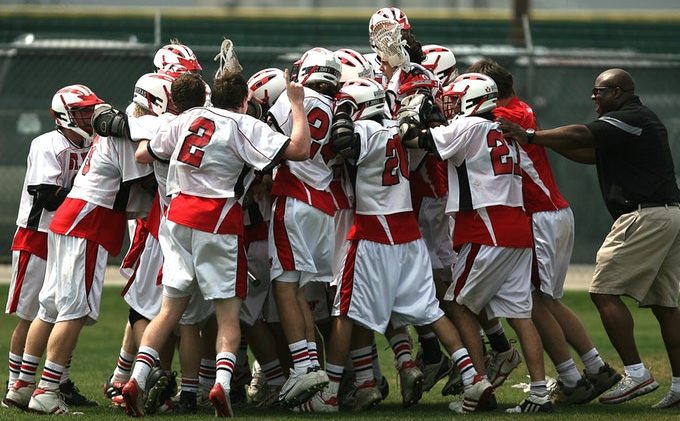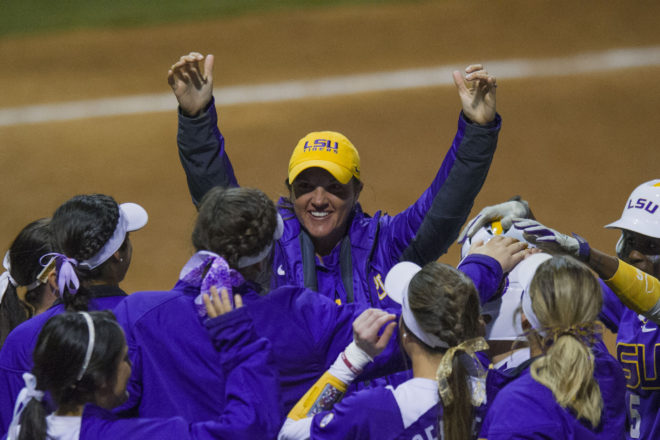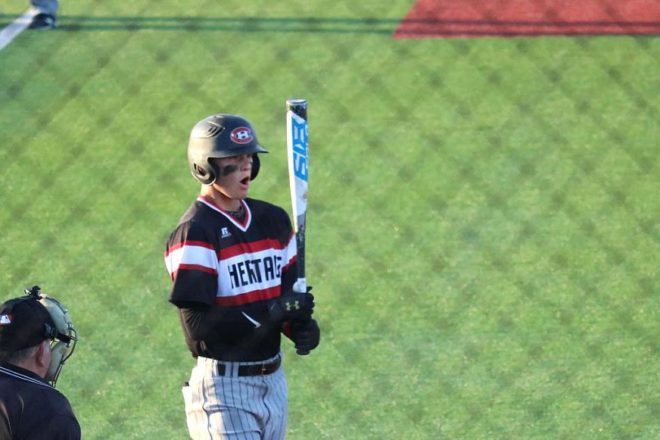Over the past few weeks, I’ve posted articles that outline simple, practical ways you can begin implementing mental performance coaching.
Today, I want to take things a step further and share a case study from someone I’ve worked with over the years to illustrate the kind of impact a well-designed, strategic mental performance coaching plan can have.
While this story is about a world-class MMA fighter, all athletes face the same challenges; and the same types of mental performance strategies can help them improve,regardless of their sport, age, or level.
So as you’re reading, think about how this could play out with your own athletes.
“Some people learn to lose; others lose and learn.” — Georges St-Pierre
On a warm Montreal day in June 2007, I slid into a restaurant booth across from one of the top UFC fighters in the world, Georges St-Pierre.
At the time, I knew two things:
- About three weeks prior to this meeting, Georges had lost his UFC champion title to Matt Serra—despite being an 11:1 favorite. Something he called the “biggest humiliation of my life.”
- Now, he wanted to meet with me.
I shifted my weight back and forth, partially to get comfortable, but more than anything, as an attempt to quiet the anticipation building in my gut.
It was the same feeling I got during every meeting like this. The kind of feeling you get when you know you can help someone break past their barriers.
The kind of feeling coaches live for.
I leaned forward, looked across the table at one of the toughest men in the world, and asked, “So, Georges, how has this recent loss affected you mentally?”
As I listened to Georges explain the challenges he was facing, I couldn’t help but smile. I was hearing the same story I’d heard a thousand times, from athletes of all levels.
Despite working really hard, despite some very impressive, high-level success, something was missing. That something was the reason he’d lost a world-championship to a less skilled fighter just a few weeks before.
And that something held the key to success he so badly craved.
Moment by moment, my smile grew; because as I sat there listening to Georges express his frustration, I knew I could help.
From outworking the competition to building an unbreakable mindset
After that meeting in Montreal, I began working with Georges as his mental performance coach.
I quickly learned that his talent, skill, and work ethic work were not the problem.
What he lacked was an intentional, consistent effort to optimize his mental performance.
In its simplest form, mental performance coaching is just like any other kind of coaching: first, you assess where your athlete is at now; then, you create a plan to consistently improve their weaknesses and turn them into strengths.
So that’s what we did.
As we talked about the challenges Georges faced and dug deeper into why his performance wasn’t what it needed to be during his last fight, his mental gaps became clearer.
First, Georges’ focus wasn’t where it needed to be leading up to the fight. He internalized what others were saying about the fight. As a result, he let his guard down, thinking he’d won the fight before he even stepped in the cage.
Second, he was struggling to recover from a big loss. After losing to a major underdog, he grappled with negativity that he knew would hinder his future performance.
I knew what we needed to work on. Now It was time to implement specific coaching strategies to turn these weaknesses into strengths.
Before we move on, I want to highlight something important. Good mental performance coaching takes more than random motivational strategies or some famous athlete’s morning routine.
Good mental performance coaching is just like any other form of good coaching: it’s personalized, specific, and intentional.
Alright, let’s get down to the nitty-gritty of how I helped Georges improve his mental performance.
The mental performance difference: Transforming mindset from a liability to a strength
Keep in mind, this isn’t an exhaustive examination of the mental performance program Georges has followed over the years.
But this will give you a snapshot of what mental performance coaching looks like in response to a few very specific mental challenges.
Lack of focus leading up to the fight
When I talked with Georges, it was clear that this fight wasn’t a scenario where he was simply beaten by someone better than him.
I mentioned earlier that he was an 11:1 favorite to win—he let this contribute to a lack of focus, preparation, and respect for his opponent—and that was the primary reason he lost a fight he was certainly capable of winning.
In the weeks leading up to the fight, Georges wasn’t training with the focus or intensity he usually did. He was doing seminars and saying yes to things he wouldn’t usually do.
In other words, his mindset leading up to the fight was a liability, not a strength.
My goal for Georges was two-fold: Help him learn what he could from this negative outcome, and then develop mental skills to help ensure this never happened again.
The first thing I did was introduce the mental performance coaching strategy called “recognize your signal lights.”
I explained that Georges should have recognized the distractions leading up to the fight as “red lights”, things that negatively affect confidence, focus, and ultimately, performance.
Had he recognized this when he first started breaking his routine, he could have turned things around and the fight may have ended quite differently.
So we broke down the characteristics of his body language, focus, and self-talk in three different scenarios:
Green light: You’re calm, focused, and in control. You’re giving yourself the best chance for success.
Yellow light: You’re losing control. You’re starting to lose the focus and mentality conducive to optimal performance.
Red light: You’ve lost control and are beating yourself.
Identifying your body language, focus, and self-talk in various situations is the awareness piece of the signal lights strategy—and it’s crucial—but it’s incomplete if you stop there.
In addition to recognizing your signals, you need to DO SOMETHING to turn things around when you’re outside your green light zone.
That’s why I helped Georges develop a “release and refocus” routine. This is an action plan to shift him back into a green light scenario when he starts recognizing yellow and red signals.
Back to where he’s focused, confident, and in control.
Moving forward, our goal was simple: Recognize his signal lights leading up to a fight and implement his release and refocus routine anytime he noticed a yellow or red light.
He used this as he prepared for his next fight and the results were dramatic; instead of walking into the Octagon doubting himself like he did with Matt Serra, he was calm, focused, and ready to perform his best
Shaking off the negativity of a loss—and moving forward
After losing a fight that everyone thought he would win, Georges felt humiliated and angry. All he could think about was getting back in the Octagon with Matt Serra to win his title back.
The problem was that this wasn’t going to happen overnight. It would likely be a year before he had another shot at it, and there would be multiple fights with other opponents during that time.
So he was stuck obsessing over his failure and trying to fast-forward to another title fight.
I knew that as long as he carried these negative thoughts and emotions, there was no way he’d be able to perform his best, even if he did get a chance to redeem himself.
To get back to his best, he needed to do two things:
- Find a way to let go of the negative thoughts and emotions surrounding a fight that was done and over so he could move on.
- Shift his goals from “getting back in the Octagon with Matt Serra” to a present moment focus.
There were two mental performance coaching strategies I used to address these issues.
Mental Performance Coaching Strategy #1: Release the “mental bricks”
The first thing we did was break down each of his negative emotions to figure out where his focus was.
Was he focused on learning from this loss so he could be better moving forward? After some digging, it became clear—he was NOT focused on the things he could control.
His focus was on things he should’ve done differently before the fight and how he’d let everyone down. His focus wasn’t going to help him learn from mistakes or move forward.
That’s a completely normal reaction for any athlete. And the answer isn’t to tell them to “think positive” or to “let it go.”
For Georges to move forward, he had to find a way to get rid of his negative thoughts and emotions.
To help with this, I introduced a strategy called “releasing mental bricks.”
I explained that much of his stress and negativity were caused by things outside his control—feelings of letting others down, feeling like he should have prepared better, etc.
And if he allowed these negative mindsets and emotions to stick around, they would become like bricks weighing him down.
He’d never be able to move forward with full force while hauling that weight around.
Once we identified the various mental bricks weighing him down, there was only one thing left to do: Ask, “Is this something I can control?”
If the answer was “yes,” we immediately put a plan into action to do something about it. But if it wasn’t something in his control, he had to LET IT GO.
This strategy is especially powerful when you write all the negative “bricks” down and tear them up, burn them, throw them away—some physical action that symbolizes getting rid of them.
With Georges, I actually had him write the name “Matt Serra” on a brick and throw it into a river as an act of letting go of the weight he carried from that loss.
This was a huge turning point that allowed him to focus on moving forward, which is what we addressed next.
Mental Performance Coaching Strategy #2: Present Moment Focus
As I mentioned above, Georges’ focus was on one thing: Getting another chance to fight Matt Serra and take back the title. And while that’s not a bad thing to want, it could actually hinder his performance if it was his sole focus.
Georges was so focused on getting another shot that he wasn’t paying enough attention to the present moment, the daily process that would help him get there.
We took that “telescope goal” of fighting Matt Serra and broke it down into smaller “microscope goals”. This included the things he’d need to do daily to be at his best when that opportunity came around.
So instead walking around thinking, “I need get another fight with him,” Georges started focusing on one day, one training session, and one moment at a time.
This brought more energy, more focus, and a more intentional approach to his daily preparation.
(Spoiler alert: Georges did get a chance to redeem himself and defeated Matt Serra a year later in UFC 83).
What this means for YOUR coaching
You’ve read about the impact of mental performance coaching on Georges’s performance.
Here are his own words:
“When I met Brian Cain I thought that training your mindset was impossible, that you only grew mentally from working hard. What I now realize is that you can train mentally just like you train physically. Brian Cain changed my mindset, sharpened my habits, and helped me be a World Champion for seven years.”-Georges St. Pierre
I get fired up just reading that because THAT’S what mental performance coaching is all about!
My goal today was to take the concept of mental performance coaching—a concept that can sometimes be hard to see the real, concrete benefits of—and show you how it can play out in a real-life scenario.
I don’t pretend to be responsible for Georges St-Pierre’s success in the UFC. HE is the one who earned that.
But I feel confident saying that I played a part in helping him turn things up a notch and take his performance to another level. THAT’S the power of mental performance coaching.
You have the opportunity to do this same thing.
At the end of the day, it comes down to this: No matter where your athletes are now, there’s room for them to be just a little bit better; to gain an extra edge over the competition and realize their TRUE potential.
When you look at the mental skills Georges struggled with, they’re the same things your athletes struggle with every day:
- Staying focused (and not letting outside opinions affect the way they view themselves or their opponents)
- Overcoming the negative mindset that follows a disappointing performance
- Developing a present moment focus so that they execute each practice, each workout, and each day to the best of their ability.
If you aren’t making an intentional, consistent effort to coach the mental side of performance, your athletes will never realize the level of success they’re capable of.
By mastering and teaching the mental skills your athletes need to succeed, you hold the power to help them turn their mindset into a strength—instead of a liability.
And as you saw from the story today, mental performance isn’t just a theoretical concept. Building mental skills and developing a stronger mindset have very real, powerful, and measurable effects on performance.
It’s the difference between losing a fight where you’re favored 11:1 and becoming a World Champion for seven years. And this isn’t just true for world-class athletes.
Think of how that translates to YOUR athletes and YOUR world…
… The difference between your team losing in the district finals and making it to the state championship.
… The difference between an athlete folding under pressure and having the focus to calmly turn up performance when it matters most.
… The difference between WINNING and LOSING.
Yes, mental performance coaching is a skill that takes some time and effort to master and apply.
That’s why I created the Mental Performance Mastery Certification.
To share a proven system that shows the step-by-step process for coaching the mental side of performance.
Inside the course, I’ll teach you how to use the coaching strategies discussed here (and many more) to help your athletes overcome any obstacle and perform their best when it matters most.
Join the free Insider’s List today to save $200 off the full course price and be the first to know when things go live.





